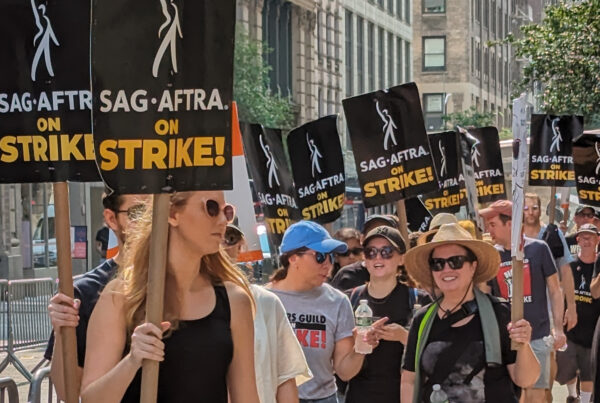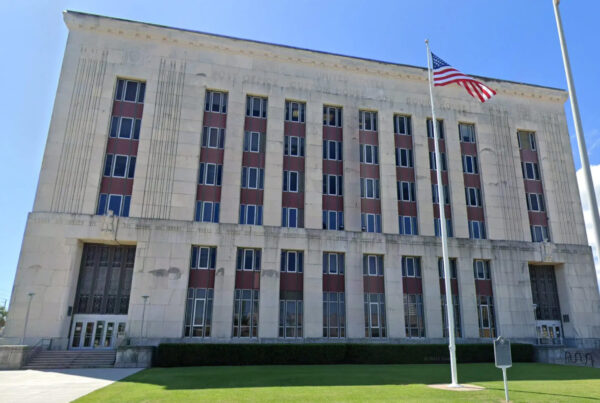In 2017, just months after Houston was hit hard by Hurricane Harvey, the Astros brought home their first World Series title.
Two years later, a bombshell report from The Athletic revealed what has become a well-known scandal: The Astros used center field cameras, which are supposed to be for challenge call reviews, to watch and steal hand signals being exchanged between the opposing catcher and pitcher during their World Series championship season in 2017.
Astros players relayed signs to teammates in the dugout, and the teammates passed those on to whoever was at bat.
In his new book, “Astros and Asterisks: Houston’s Sign-Stealing Scandal Explained,” Jonathan Silverman explores the ramifications of the scandal for the world of baseball.
This transcript has been edited lightly for clarity:
Texas Standard: You’re not really litigating whether the cheating actually happened. That’s not really one of the main questions you’re exploring here. What was your goal in writing this book?
Jonathan Silverman: I have a Ph.D. in American Studies from UT Austin, and one of the hallmarks of American Studies is trying to put things in context. I feel like with something like the sign-stealing scandal, there’s no real one way to cover it.
You want to know the history of cheating, to understand the context there. You want to know why players might have cheated, why fans stuck with their team, some of the technology elements that really led to this. So I have a bunch of different people — historians, philosophers, journalists, experts on fan studies and technology — all exploring this one scandal to give the reader a bigger sense of why this scandal occurred.
Did the Astros face any consequences from the league after all this came to light?
They did. Commissioner Rob Manfred suspended the General Manager [Jeff Luhnow], the bench coach, Alex Cora, and Carlos Beltrán, a player who was later determined to be the ringleader who had been hired by the Mets to be the manager. And then they were all fired. After that, [the Astros] were fined, I believe, $5 million. And also some of their draft picks were taken away.
What do you think this did in terms of diehard Astros fans’ responses – but not just that, I mean, baseball fans more broadly?
Well, what was interesting, of course, is that COVID happened almost right after [this reporting came out]. So there were hints of some reactions in the stadium during spring training before COVID shut everything down — signs, people banging on trash cans, all sorts of things. But most of the action really took place online, and I think most fans really dug in after a while.
I think if you’re a fan of a team that’s never won a World Series and you have the feeling that maybe you guys were not the only ones cheating, I think it’s very hard to disassociate yourself from the team. And the Astros won another World Series last year, obviously. And I think that’s caused any misgivings they might have by staying with the team even more.
» GET MORE NEWS FROM AROUND THE STATE: Sign up for our weekly ‘Talk of Texas’ newsletter
What made the Astros cheating scandal unique from other scandals in baseball history? We’ve seen past scandals involving clubs and individual players that they always seem to recover.
There are two things that I think are really interesting about this scandal. One is the mix of high tech and low tech. They used a very expensive camera to steal the signs, and then the players bang on a trash can to convey the results. So that really struck people’s fancy, I guess, in a way.
But the second part is the fact that the person who logged all the trash can bangs was the fan, Tony Adams, who appears in our book. He watched YouTube and figured out basically the extent of the scandal. … So you have all this video and online materials and the fans really participating in the meaning, making and understanding of the scandal in a way that would have obviously been impossible, you know, 60 years ago or even 20 years ago.
In what way has this story sort of been written or rewritten due to the age we’re living in?
I think the Internet is a really strong force in this scandal. And the fact that technology is this broad force that we sort of refer to shorthand, but really has profound effects in sports.
At the same time, you have this game where people are standing in a park, waiting for a ball to be hit using a wooden bat. Basically, this is the same scene that would have occurred a hundred years ago. So you have this really interesting contrast between high tech and a game that is very familiar to people. And I think that tension still exists throughout American culture and especially in baseball.
Are there implications for this going forward for baseball writ large?
I think what this scandal did was really start to regulate technology at a higher level. Before this scandal, there had already been a few warnings given to the Red Sox and the Yankees for using technology in similar ways.
Now there are more rules like how cameras are used, who can be watching them, what kind of devices are legal, what kind of devices are not legal – all those things have been more clearly outlined by Major League Baseball. I’m sure there are more things to be regulated, and I’m sure there are commentators who say this is not enough. But that is a big outcome.














